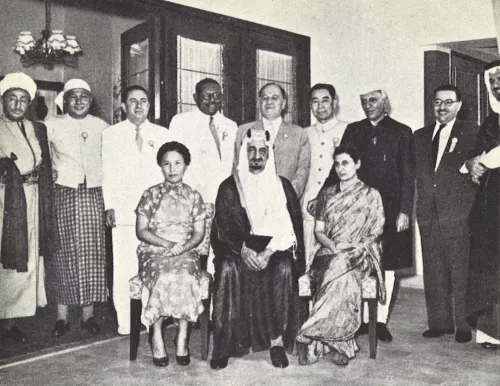Delegates attending the Bandung Conference pose for a group photo, April 1955
Photograph from China and the Asian-African Conference (Documents) (Peking, 1955).

Leading representatives from twenty-nine newly independent African, Asian, and Middle Eastern countries came together for the Afro-Asian Conference in Bandung, Indonesia, from 19 April-24 April 1955. See also: The Second Asian-African Conference.
